Woman hit by two Tube trains climbs Kilimanjaro
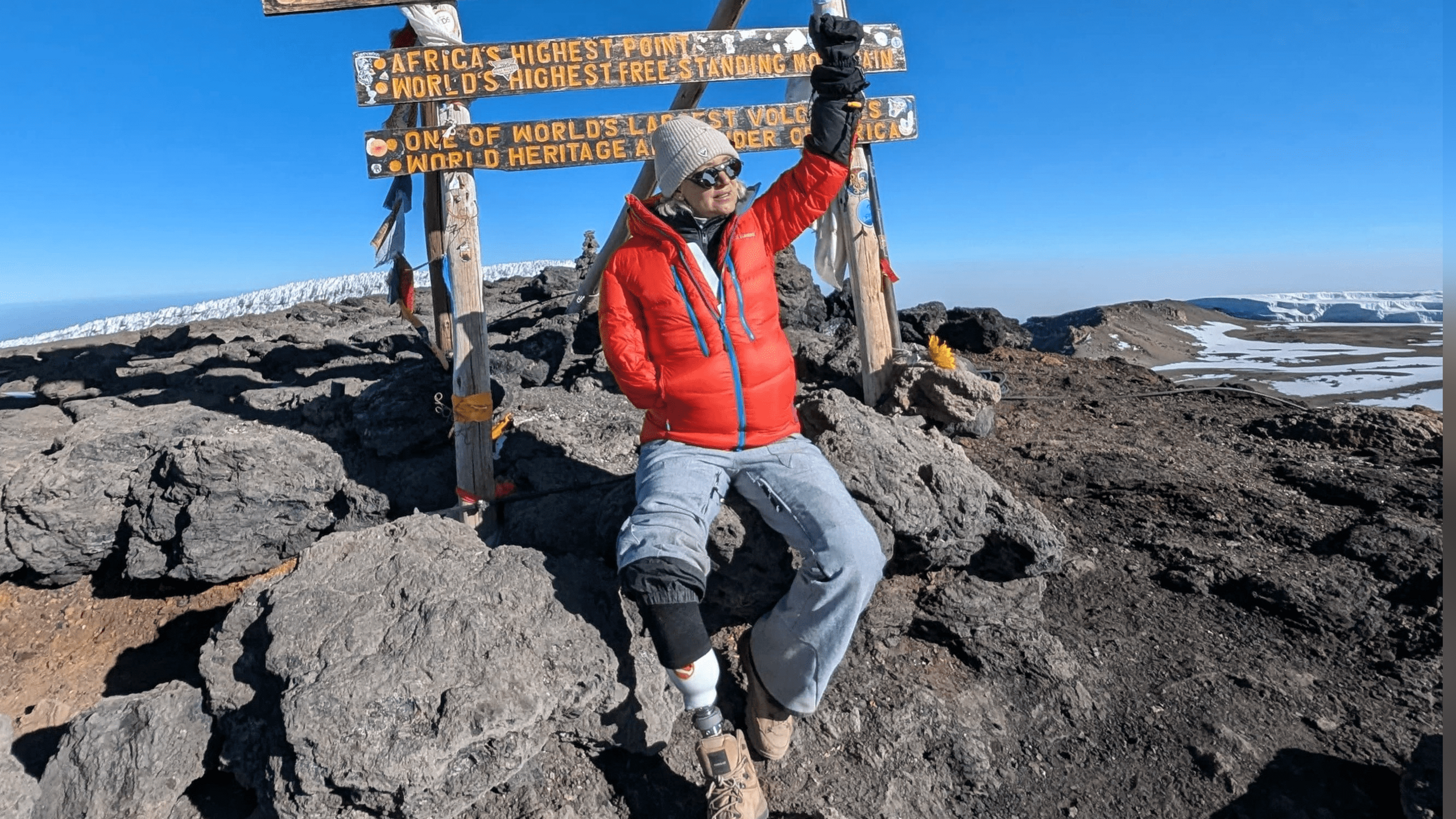
Sarah de Lagarde said reaching the summit was a "triumph over adversity"
- Published
A woman who lost an arm and leg after being struck by two Tube trains has become the first female double prosthetic-wearing amputee to climb Mount Kilimanjaro.
Sarah de Lagarde, from Camden, north London, said: “Standing atop Kilimanjaro was a moment of triumph over adversity, not just for me but for everyone who has faced and overcome challenges."
She spent five days climbing the dormant Tanzanian volcano, reaching the summit on 14 August.
Her accident on the London Underground happened in September 2022, a month after she first climbed the 19,341ft (5,895m) mountain. Her right arm and right leg were amputated as a result of her injuries.
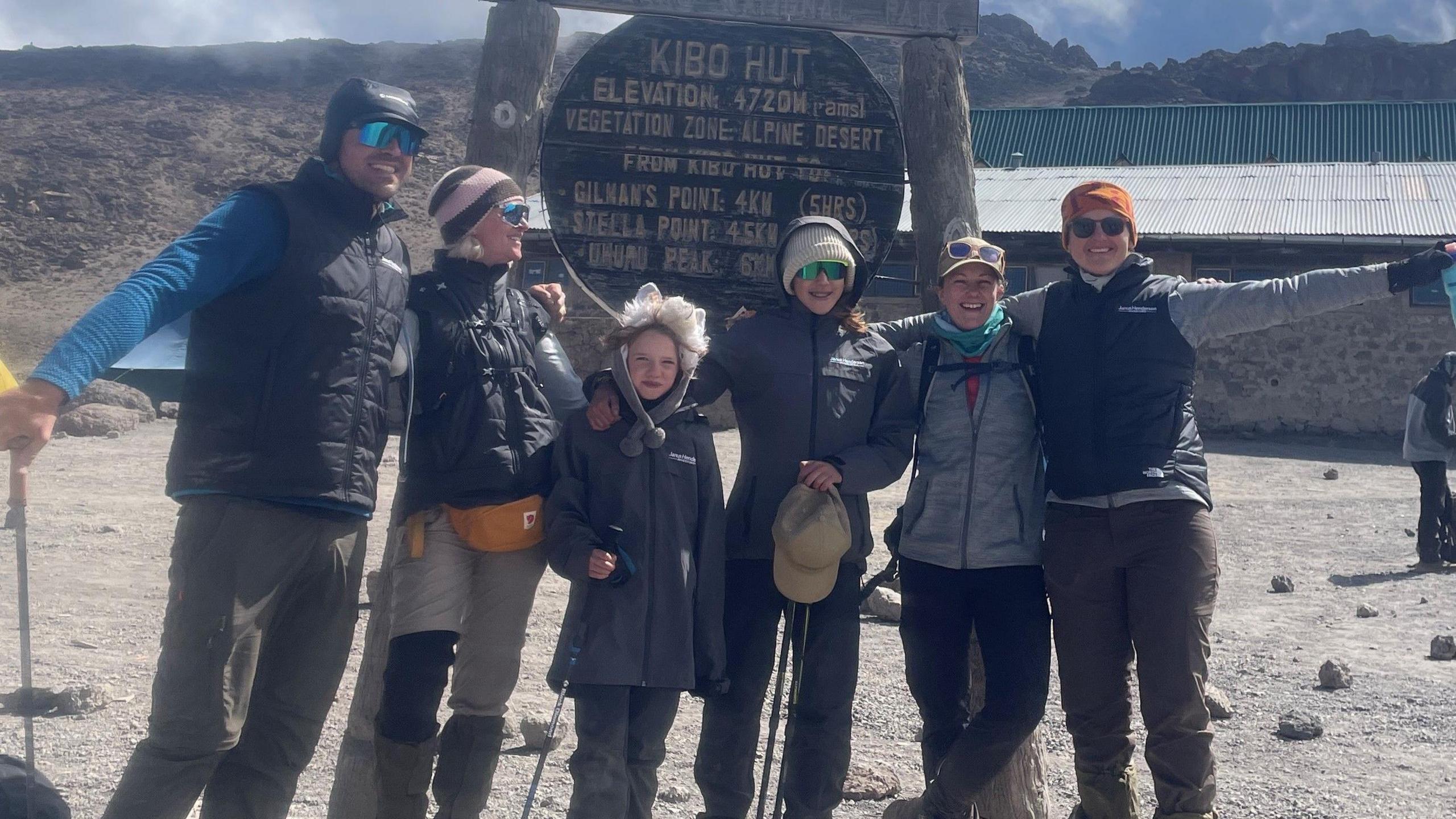
Ms de Lagarde at base camp with her husband Jeremy and their daughters
Ms de Lagarde completed the 50-mile (82km) hike with a dedicated team including medical professionals and local guides.
Her husband Jeremy and their daughters, aged 10 and 13, also joined her some of the way.
Each day Ms de Lagarde ascended a further 4,921ft (1,500m), and hiked for 16 hours on summit day.
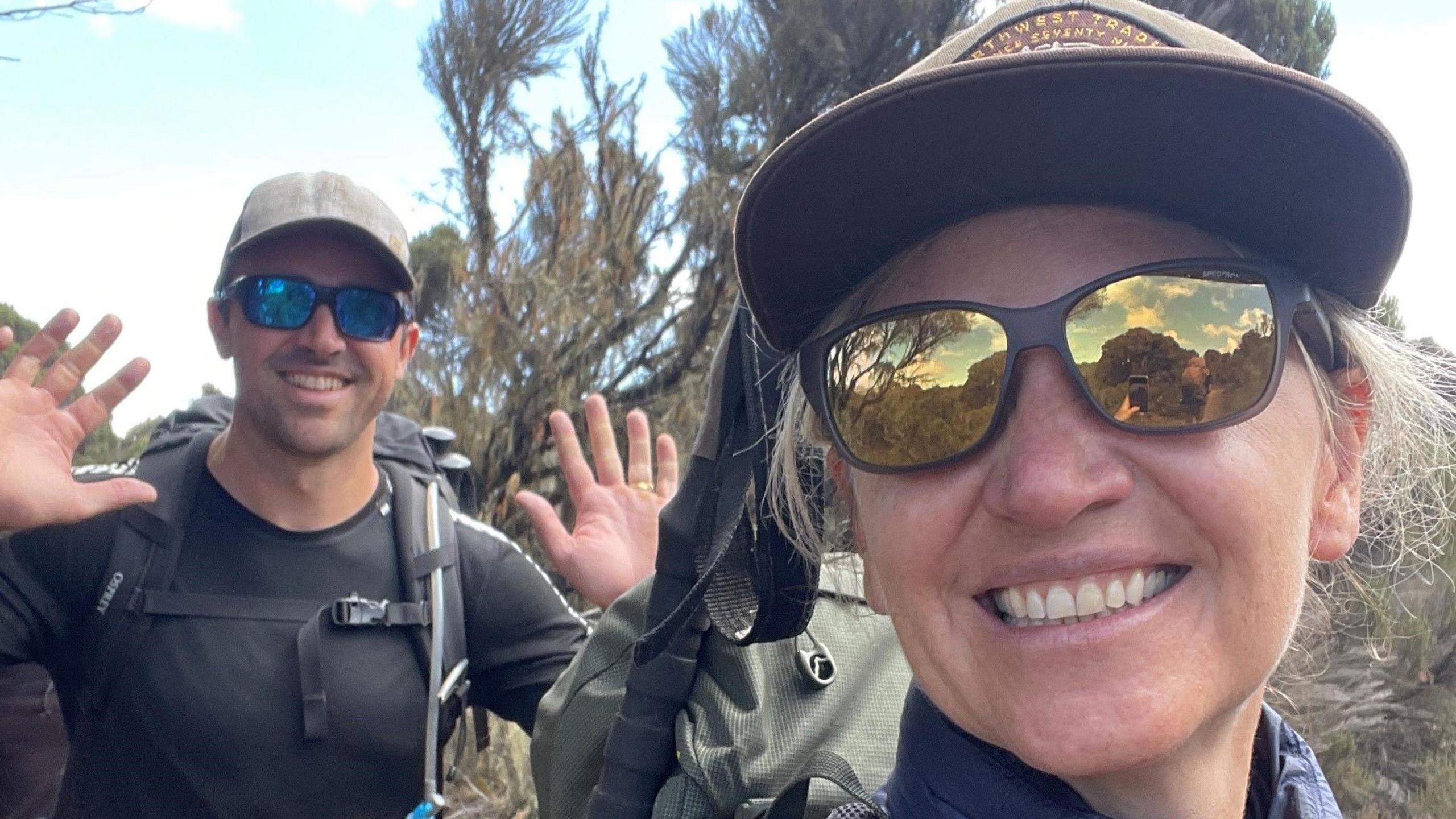
Ms de Lagarde did some of the climb with her husband and daughters
"There was a halfway point where I had really severe phantom limb pain," Ms de Lagarde told BBC Radio London.
But with "motivational words" from her family, they continued.
"The last two years have been so hard," she said.
"There was so much I overcame during that time, I thought, climbing a mountain - actually this is nothing in comparison."
Ms de Lagarde said reaching the summit was an "incredible" moment.
"I was so relieved I burst into tears. The intense beauty of that place in itself, it looks so otherworldly.... I really shed quite a few tears."
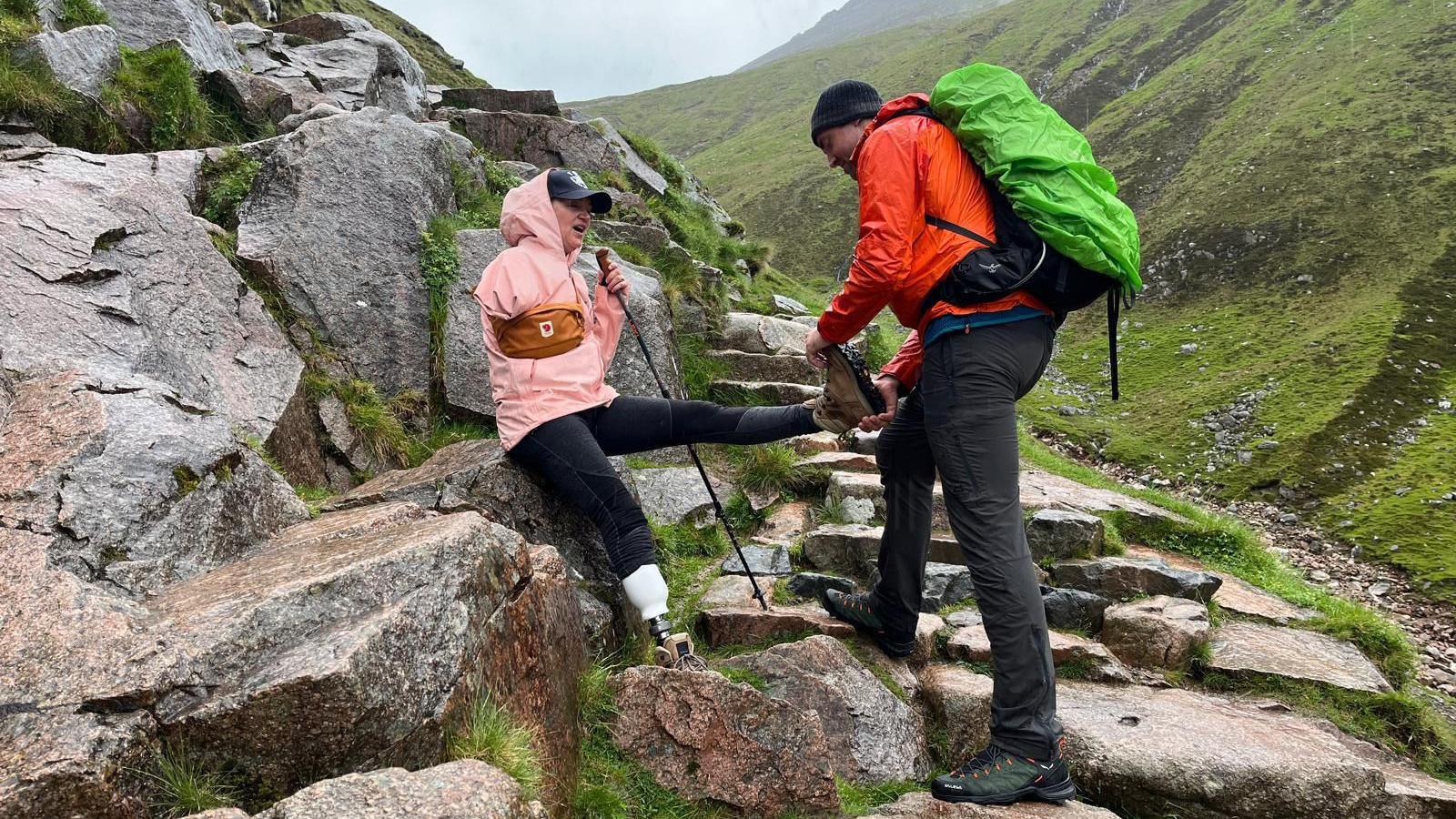
Ms de Lagarde said she doesn't want her children to think of her as a "victim"
Ms de Lagarde said she started seriously thinking about the climb six or seven months ago.
But the idea was first suggested straight after the Tube accident.
She said: “Because I’d just climbed Kilimanjaro, a lot of people when they came to see me in hospital, friends, family, my lovely colleagues, they all said: ‘You know what? One day you’ll climb Kilimanjaro again.'
“Once I got into rehab, there was something about that mountain that was inspiring me."
She added that her mother gave her a painting of the volcano to use as "inspiration to get out of bed".
"You become so vulnerable when you can’t walk," Ms de Lagarde said. "I can’t zip up my own dress, I can't put my earrings in, I can’t shower by myself.
"Everything is just really really difficult... that’s my day to day."
She added that her children had had "to grow up quickly”.
"I used to zip up my daughters’ jackets, now they zip up mine," she said.
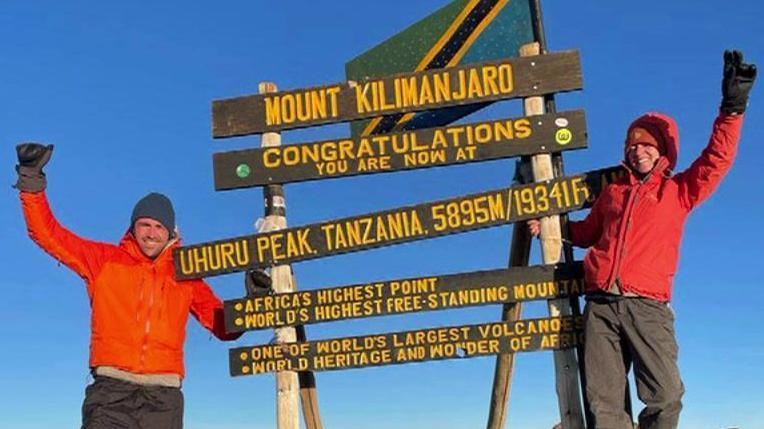
Ms de Lagarde was hit by two Tube trains a month after she first climbed Mount Kilimanjaro
Ms de Lagarde was fitted with a prosthetic leg and an arm that use AI technology, after she was hit by the Tube trains on 30 September 2022.
She was travelling home from work when she fell on to the track at High Barnet, and was run over by the train she had been travelling on as it left the station and then by a second train.
She was discharged from Guy's and St Thomas' Hospital after two months, having learned to walk again.
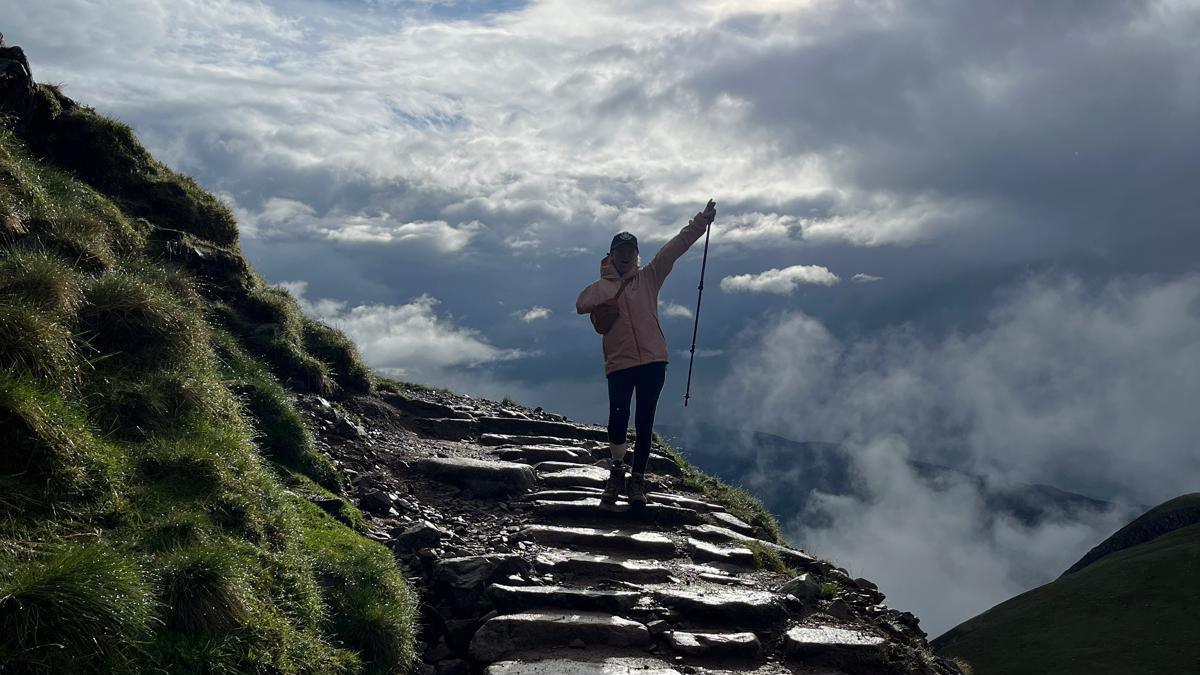
Ms de Lagarde said she had to learn how to walk again
During her trip to Tanzania, Ms de Lagarde visited a centre for prosthetics and rehabilitation in Moshi, the capital of the Kilimanjaro region.
There she connected with individuals facing similar challenges.
“Visiting the prosthetics centre in Moshi was incredibly humbling," she said.
"It reminded me why we embarked on this journey - to inspire and help others to see beyond their limitations.”
Her climb raised more than £10,000 for STAND, a charity helping amputees in conflict zones and developing countries. She hopes to raise £25,000.
Listen to the best of BBC Radio London on Sounds and follow BBC London on Facebook, external, X, external and Instagram, external. Send your story ideas to hello.bbclondon@bbc.co.uk, external
Related topics
- Published20 July 2024

- Published7 December 2022
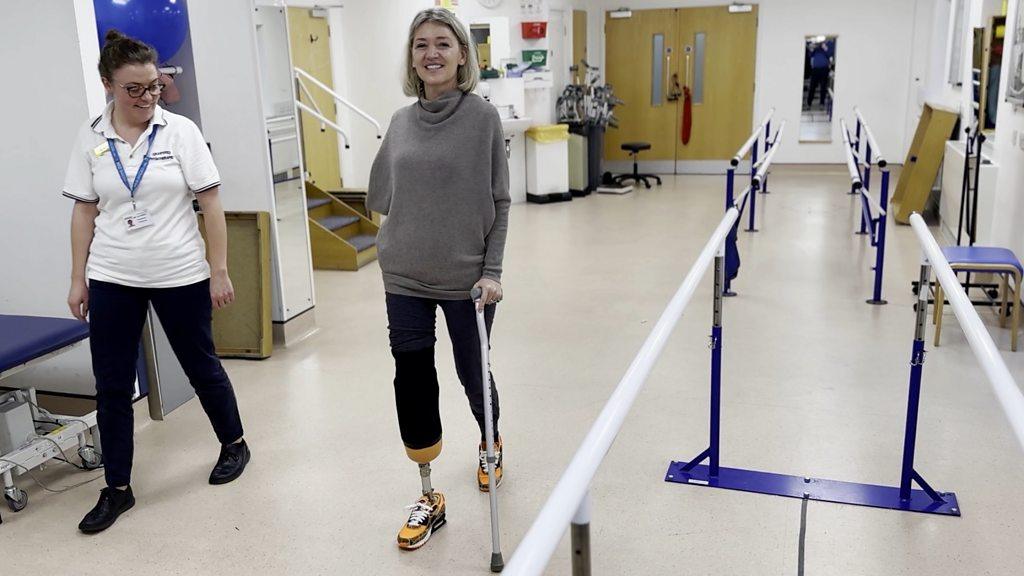
- Published3 August 2023